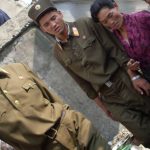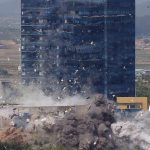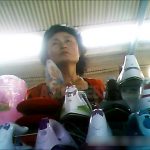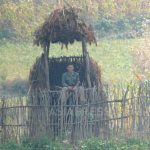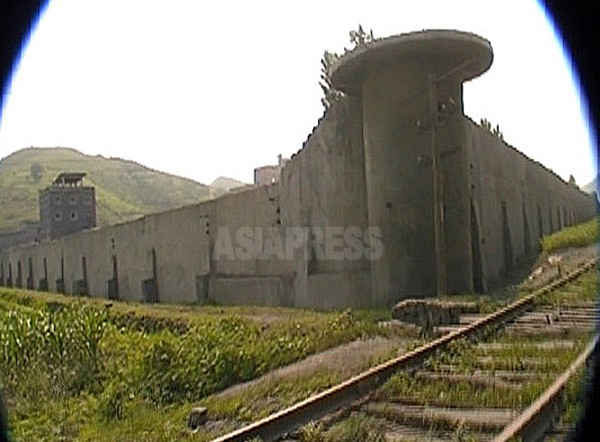
The Kim Jong-un regime is planning a “great amnesty” or mass pardon starting at the end of January. As a result, many people will be released from prison with their sentences reduced. However, the authorities are concerned about social disorder caused by potential recidivism, retaliation, and poverty and are thus focusing on plans for monitoring released prisoners (Kang Ji-won).
On January 20, North Korea's Standing Committee of the Supreme People's Assembly announced a decree to implement a mass pardon starting on January 30 to mark the 110th anniversary of the birth of Kim Il-sung and the 80th anniversary of the birth of Kim Jong-il.
The authorities are growing tense over how to manage the large number of prisoners set to be released from prison through the mass pardon. According to our reporting partner, who lives in the northern region of the country, the authorities have notified agencies and companies of the following in order to monitor and control released prisoners.
• Regardless of their occupation before imprisonment, released prisoners will be managed according to their crimes.
• Released prisoners will be placed in enterprises selected by the labour department of the people's committee and all released prisoners shall be assigned a Party member to make sure they can adapt to society.
• If a released prisoner makes trouble or fails to settle in society, the Party leadership, administrative cadres, security personnel in charge, and security guards (secret police) will be responsible jointly.
• Prisoners will be provided a week's supply of food upon release.
◆ Thorough monitoring of released prisoners
Our reporting partner who conducted the research explained that in areas close to the Chinese border, many people are imprisoned for "border-related crimes," and monitoring and control measures are strict, as described below.
"Those who were caught in cases related to China, such as smuggling, aiding and abetting North Korean defectors, human trafficking, drug trafficking, etc., were designated for exceptional management, with safety officers (police officers) in charge to make preliminary preparations for monitoring and supervising in coordination with the companies to which they were assigned.
To tell the truth, the city proposed to assign the released prisoners to construction organizations such as the "Assault Team" and the "Construction Team" for group management. However, the Workers' Party Committee opposed the idea and they ended up being assigned to various units. This was to prevent the large number of people who had been imprisoned from forming gangs, causing incidents, or defecting."
It is clear that the authorities are on edge about maintaining social order.
◆ The issue is how to feed the released prisoners.
There is another problem that has been bothering the authorities. That is, how to feed the large number of released prisoners. The majority of North Korean residents are currently struggling to make ends meet. Apparently, there are families who cannot afford to feed their released family members.
"At the moment, it is decided that the released prisoners will be given food for a week. It is obvious that those who are released from prison are malnourished, and their families are naturally worried about how they will keep them alive- they are becoming increasingly concerned."
The Kim Jong-un regime also conducted a mass pardon in August 2018, the 70th anniversary of the country's founding, but there was confusion as many of the people released from the indoctrination camps were malnourished, diseased, and had nowhere to go.
※ASIAPRESS contacts its reporting partners in North Korea through smuggled Chinese mobile phones.
- <Inside N. Korea> Exchange Rates for Foreign Currencies Skyrocket After Resumption of Railroad Trade; U.S. Dollar rises 24% (2022-01-24)
- Nationwide “Compost Battle” Begins Again: Cash-Strapped Regime Continues Missile Testing While Forcing Citizens to Collect Feces for Farm Use. ISHIMARU Jiro (2022-01-20)
- <Inside N. Korea> Social Unrest and Discontent Over Lack of Special Rations as Security is Stepped Up For Kim Jong-un's Birthday For the First Time (2022-01-11)
- <Inside N. Korea> Growing Radicalization of People's Control (3): 14 Year-Old Junior High School Students Taken Out of Class in Handcuffs for Watching a Foreign Film…More than 20 Arrested So Far (2022-01-07)
- <Inside N. Korea> Drug Trade: Addicts and Traffickers Turn to Opium as Methamphetamine Prices Skyrocket Due to Border Blockade (2021-12-27)
